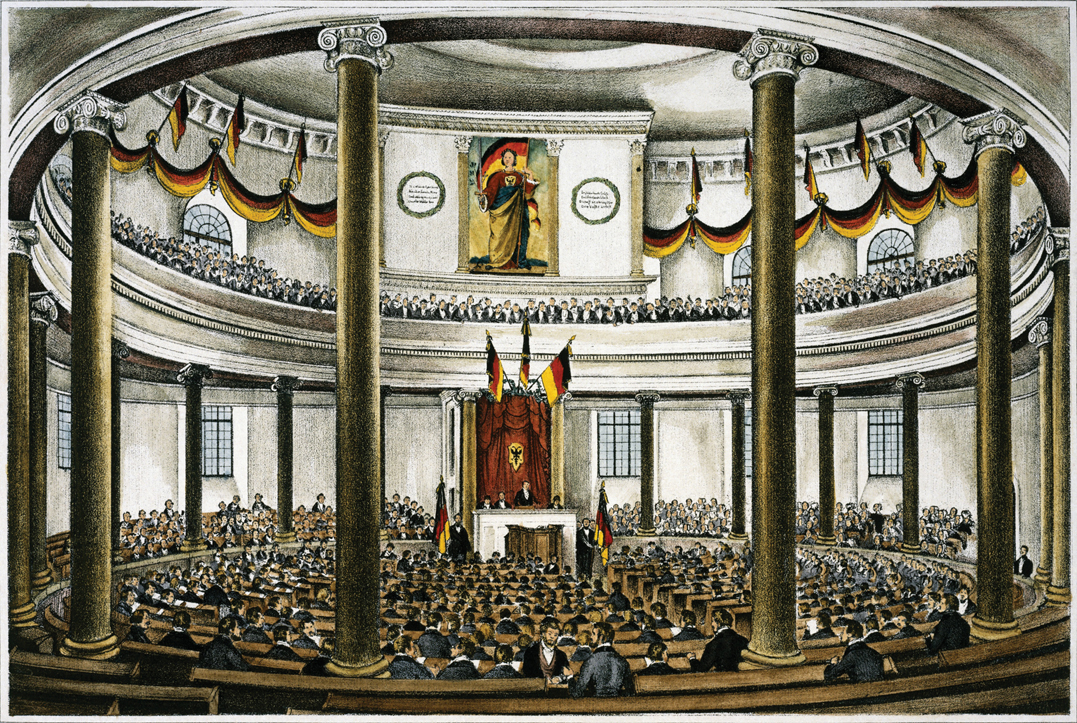A History of World Societies:
Printed Page 720
A History of World Societies Value
Edition: Printed Page 726
The Growing Appeal of Nationalism
Nationalism was a radical new ideology that emerged in the years after 1815 — an idea destined to have an enormous influence in the modern world. In 1808, in an address to a German audience in French-
Nevertheless, many European nationalists sought to make the territory of each people coincide with well-
Scholars have struggled to understand how the nationalist vision, often fitting poorly with existing conditions and having the potential for tremendous upheaval, was so successful in the long run. The nationalist vision triumphed partly because the development of complex industrial and urban society required better communication between individuals and groups.2 The need for communication promoted the development of a standardized national language that was spread through mass education, creating at least a superficial cultural unity. Nationalism also came into being as a result of the ardent writings and speeches of nationalists themselves, which helped to spread the new idea of the nation as a natural community that should possess control over its destiny as a sovereign state. Those who believed in the new ideology thus helped create “imagined communities,” which bound inhabitants through the abstract concept of an all-
Between 1815 and 1850 most people who believed in nationalism also believed in either liberalism or radical democratic republicanism. A common faith in the creativity and nobility of the people was perhaps the single most important reason for the linking of these two concepts. Liberals and especially democrats saw the people as the ultimate source of all good government. They agreed that the benefits of self-

Yet early nationalists also stressed the differences among peoples, and they developed a strong sense of “we” and “they”; the “they” was often viewed as the enemy. Thus, while European nationalism’s main thrust was liberal and democratic, below the surface lurked ideas of national superiority and national mission that eventually led to aggression and conflict against supposedly inferior peoples in Africa and Asia, and to the great world wars of the twentieth century.